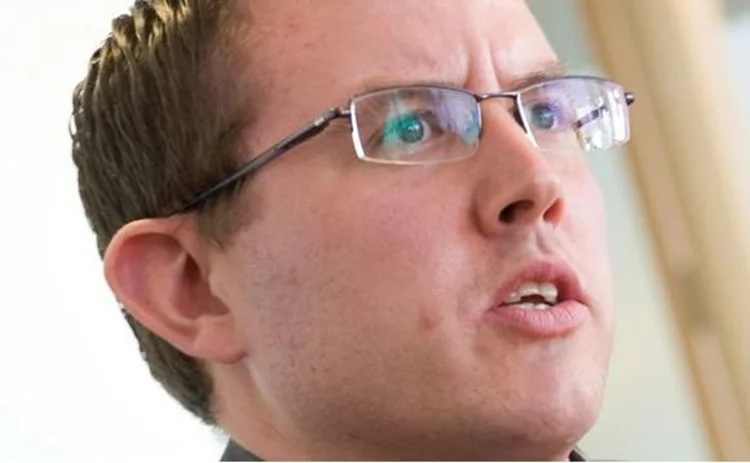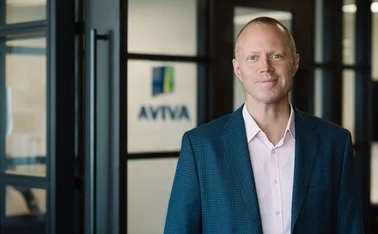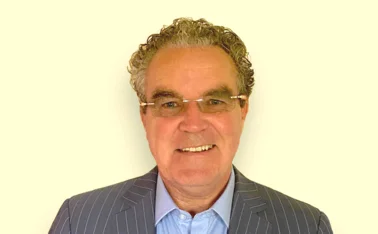
Interview - Jamie Hersant: An eventful journey

Officially lauded as a rising star in the claims world, Jamie Hersant shares his views with Jonathan Swift on seizing opportunities, constructive conversations and enhancing experience with exams.
Like many people whose job involves travelling, the senior unit manager of household claims at Axa Insurance, Jamie Hersant, has a few tales of journey times being stretched beyond mild annoyance when commuting around the UK recently.
So, it is with some relief that the 2009 Claims Club rising star of the year — who is based at Axa's personal lines centre in Morecambe — arrives in London to talk to Post after a relatively uneventful journey. Mind you, the big thaw that has followed the snow and ice is certainly keeping him and his team busy with claims, most notably escape-of-water.
Mr Hersant began his career in the sales and service department at Guardian Direct's office in Colchester, moving into motor claims 12 months before Axa acquired the operation in 1999. The insurer then closed this base and moved the operation to Ipswich.
It was at the point he took a job in claims that Mr Hersant admits he saw a future in insurance: "When I moved into claims, it was actually a career step rather than simply a case of having a job. Issuing a policy or doing a renewal was standard stuff, but dealing with the many different situations in claims was more taxing."
Asked how he believes his talents have been nurtured at Guardian and then Axa, Mr Hersant admits he has learnt a lot on the job. "We do have internal talent schemes at Axa, but I didn't necessarily go down that route. I have had some very effective managers, whose guidance — aligned with the courses and training — has meant I have been able to progress through the operation. I would say learning from the people around me has been the main driver behind my progression."
Qualifying value
Mr Hersant has yet to sit any Chartered Insurance Institute exams, but that is not to say he does not see their value. "I encourage members of my team to do it, and we have a lot of staff members taking CII courses. It is absolutely something I will do in the future, but personally it has been a question of time for me, which is frustrating.
"Where I see the CII exams as being really useful is in making people think about the wider business, whether it is underwriting or modelling, other than the job they perform on a day-to-day basis. I look at where the gaps are in my development and whether they can be filled by an ACII qualification, and I would say 60% to 70% may not be. But that obviously leaves 30% to 40% that could be; so there is a benefit."
An early sign of Mr Hersant's career-focused determination to grab new and interesting opportunities as they arose was his decision to help set up an out-of-hours, first notification of loss operation in Bangalore, India — before migrating it to Pune five months later.
In total, he spent 18 months working on this project, and is still enthused about the experience: "It was the best experience of my life. I was 23 when I went out there, reporting to a line manager in the UK, but basically left to make my own decisions to do what had to be done, train the people and then feed back to the UK. I found it really empowering."
Fresh perspective
As reward for scooping the Claims Club accolade last year, Mr Hersant also won a trip to attend a study tour to Florida in October courtesy of CSC, which included attendance at one of the technology provider's industry events. Again, Mr Hersant explains this offered invaluable experience: "The events I normally go to are insurance-led. In contrast this was driven by a technology firm so there was much more focus on that side of the market. It was all about securing a different perspective — a technology one — on where the industry is and where it could expand."
Having moved back to the UK in April 2005, Mr Hersant made his first foray into household claims, initially as a supply manager in Birmingham before moving to Morecambe within two years. Given that he has now spent time in both motor and household claims, he is well-placed to understand the challenges each market faces.
"In household, every claim is different; whereas, in motor, you could probably classify all claims into three or four types. For example, an escape-of-water claim can cost you £200, while another will set you back £45 000. Both could have been caused by the same thing, but the action the customer takes determines how much it ultimately costs."
And while he is glad to no longer be dealing with the thorny issue of credit hire, Mr Hersant concedes that managing supply chains in property claims present its own, equally pressing, challenges. "In motor you have electronic image links with suppliers, so you can see what they are doing and what damage has been done to a car. But because you can't send someone out to inspect every property you insure, you are more heavily reliant on third parties.
"Instead you have to try and manage the process through data and customer feedback, but there are problems. For instance, you could have a franchised operation that is delivering a fantastic service in one part of the country, while in another it doesn't give two hoots as long as it is maximising the money being made."
Even in his relatively short career, Mr Hersant has seen some significant shifts and changes in the claims sphere — none more so than the relationship with underwriting, which he believes is now much closer. "That is benefiting customers because we are having in-depth and constructive conversations about products — how policies work, how they are worded, what cover is provided and how customers understand all that.
"And you can only generate this from our experience of handing and repudiating claims. I would say that, in the last two and a half years, there has been a huge shift in terms of how claims and underwriting work together and I have seen our customer satisfaction results go up as a consequence."
Given these closer ties, does Mr Hersant now have a desire to try his hand on that side of the insurance fence or elsewhere? Or does he still see opportunities and room to personally develop in claims? "There is enough in claims, in terms of potential roles, to keep me in that environment," he responds. "So, while I believe my skills are transferable, there are still sufficient challenges here. And, at Axa, things never stand still."
Jamie Hersant on:
The role of technology in claims "I can see a real push on e-enablement and e-notification, with brokers having access to claims systems. This is something that is probably there already in some guise, but no insurer is doing it as well as it could. And that is where I see things going in the next 12 to 24 months."
Procurement "Where one supplier offers something for £1.50 per unit and another for £3.00, the procurement department might logically say 'go for the cheaper option'. But when you get the system back into the business, you may discover it has no functionality. So what we have learnt over the last 10 years is that it is necessary to involve operational people in those decisions because it is the day-to-day claims handlers that have to use the system."
Only users who have a paid subscription or are part of a corporate subscription are able to print or copy content.
To access these options, along with all other subscription benefits, please contact info@postonline.co.uk or view our subscription options here: http://subscriptions.postonline.co.uk/subscribe
You are currently unable to print this content. Please contact info@postonline.co.uk to find out more.
You are currently unable to copy this content. Please contact info@postonline.co.uk to find out more.
Copyright Infopro Digital Limited. All rights reserved.
You may share this content using our article tools. Printing this content is for the sole use of the Authorised User (named subscriber), as outlined in our terms and conditions - https://www.infopro-insight.com/terms-conditions/insight-subscriptions/
If you would like to purchase additional rights please email info@postonline.co.uk
Copyright Infopro Digital Limited. All rights reserved.
You may share this content using our article tools. Copying this content is for the sole use of the Authorised User (named subscriber), as outlined in our terms and conditions - https://www.infopro-insight.com/terms-conditions/insight-subscriptions/
If you would like to purchase additional rights please email info@postonline.co.uk
Most read
- Esure offers customers six-months free cover for latest tech glitch
- Big Interview: Jason Storah, Aviva
- Copart confirms delays to Luton Airport salvage operation








